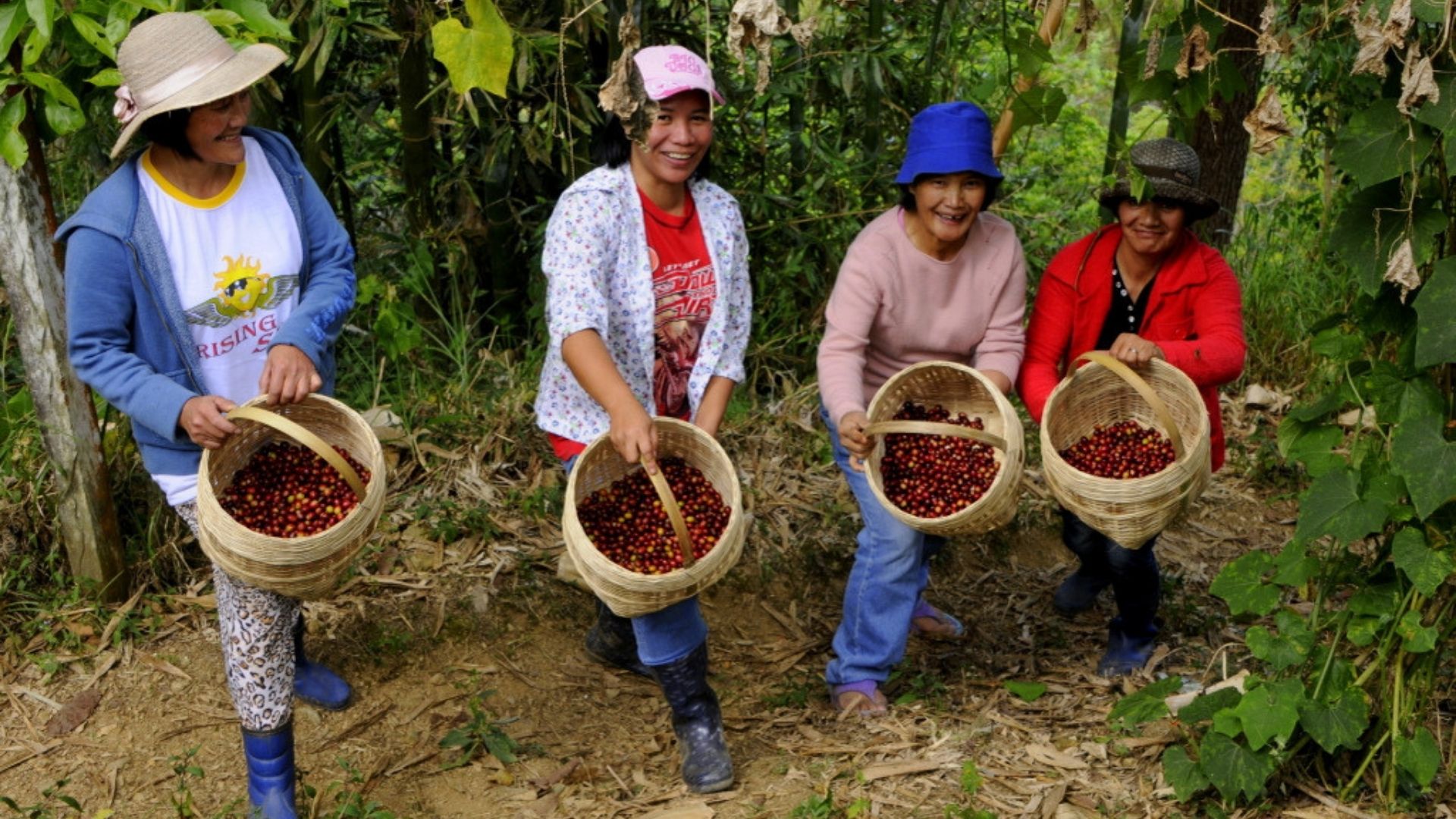Nestled in the rugged highlands of the Cordillera region, the town of Bakun in Benguet province is emerging as a premier source of premium Arabica coffee in the Philippines.
With elevations ranging from 1,200 to 2,500 meters above sea level, Bakun offers the ideal climate and terrain for cultivating Arabica beans renowned for their distinct quality and flavor.
A Legacy Rooted in the 19th Century
Grinding and brewing of Arabica coffee in Benguet dates back to near 1875, when Spanish colonizers introduced the Typica variety to the region. Over the years, the indigenous Igorot communities embraced coffee cultivation, integrating it into their agricultural practices.
Despite challenges such as the coffee rust epidemic in the late 19th century, which devastated many plantations, Benguet’s resilient farmers have preserved and revitalized their coffee heritage.
In the present, initiatives to boost coffee production have gained momentum. For instance, a local renewable energy company donated 5,000 Arabica coffee wildlings and 500 cacao seedlings to Bakun, aiming to enhance the town’s agricultural agricultural output and meet the rising demand for high-quality coffee.
“This initiative empowers farmers to scale production, take advantage of the rising demand, and position Bakun as a key player in the coffee industry,” the company said.
Flavors of Benguet’s Arabica
The unique characteristics of Benguet Arabica have not gone unnoticed. The beans are celebrated for their sweet and nutty profile with hints of chocolate, nuts, caramel, tropical fruits, and even delicate floral hints – reminiscent of other esteemed coffees like Hawaiian Kona and Jamaican Blue Mountain.
This exceptional notes of flavor has led to a growing number of local roasters and cafes sourcing their beans directly from Benguet, ensuring freshness and supporting local farmers such as the following:
1. Bo’s Coffee (Nationwide)

Bo’s Coffee sources beans from Benguet and other key coffee-growing regions such as Saga, Mt. Apo, and Bukidnon. Their commitment to local farmers ensures sustainability, and their coffee offerings showcase the distinct flavors of the country’s best Arabica.
To learn more, visit their website here.
2. Kape Umali (Baguio City)

One of the oldest coffee brands in the Philippines, Kape Umali has been in the industry for over 70 years. With extensive Arabica cultivation in Benguet, Kalinga, and Mt. Province, they provide fresh, highland-grown coffee known for its bright acidity and balanced flavors. Their Baguio cafe offers a variety of roasts from light to dark, catering to both casual coffee drinkers and connoisseurs.
To learn more, visit their website here.
3. Hilltop by Everyday Coffee Roasters (Quezon City)

A specialty coffee shop focusing on third-wave coffee practices, Hilltop sources Arabica from Kapangan, Benguet. They emphasize single-origin beans, offering pour-over brews that highlight the unique terroir of Philippine coffee. Their cozy minimalist space is perfect for those who appreciate carefully brewed, high-quality coffee.
To learn more, visit their website here.
4. Commune (Makati City)

More than just a cafe, Commune is a strong advocate of Philippine coffee. They work directly with Benguet coffee farmers, ensuring ethical sourcing and fair trade. Known for their expertly crafted espresso drinks and latte art, this cafe also serves as a community hub for coffee lovers, offering workshops and events like their Coffee University classes by the Philippine Coffee Board and Commune to promote local coffee culture.
To learn more, visit their website here.
5. Kalsada (Manila, Philippines, US, Australia, Singapore, and Europe)

A social enterprise dedicated to empowering Filipino coffee farmers, Kalsada Coffee partners with growers in Benguet to produce high-quality, direct-trade Arabica. They focus on sustainable farming and processing methods, ensuring fair wages for farmers while bringing out the best in local coffee through specialty roasting techniques. Their beans are also available online and in select partner cafes.
To learn more, visit their website here.
The collaboration between Benguet’s coffee farmers and these local businesses not only brings quality coffee to consumers but also fosters sustainable agricultural practices and economic growth in the region.
As more Filipinos and international visitors develop an appreciation for locally sourced coffee, Benguet’s Arabica stands poised to become a staple in the cups of discerning coffee lovers. The future of Benguet’s Arabica coffee is indeed brewing bright.








